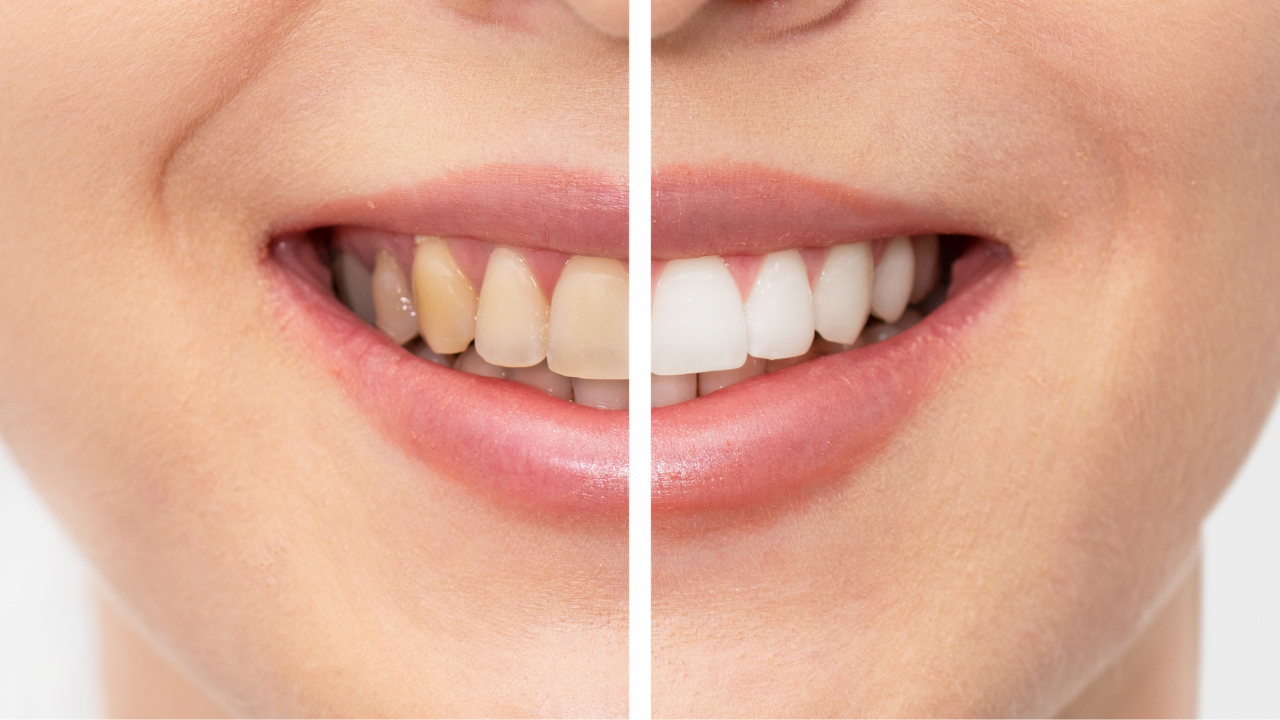
The Gentle Glow: Mastering Teeth Whitening for Sensitive Smiles
Posted March 28, 2024 by Haresh SavaniBrighter Smiles Without the Sting
Imagine a world where your morning coffee or evening glass of red wine doesn't leave you anxious about staining your teeth. Yet, for those with sensitive teeth, the dream of a luminous smile often feels just out of reach. The mere thought of teeth whitening can conjure up visions of wincing and discomfort. But what if there was a way to achieve that coveted sparkle without the pain?
In the realm of oral care, where the brilliance of one's smile can often feel like a badge of honor, many have tread lightly around teeth whitening, especially when sensitivity is a constant companion. Yet, the narrative is shifting, offering a glimmer of hope for those who have felt sidelined in their quest for a brighter smile.
Addressing Tooth Sensitivity: Whiter Smiles Without the Pain
Sensitive teeth can be a real pain, both literally and figuratively. The discomfort associated with sensitivity often stems from exposed dentin, the layer beneath the enamel, which contains microscopic tubules filled with nerve endings. When the protective enamel wears down or gums recede, these nerves can be triggered by various stimuli, leading to that sharp, fleeting pain characteristic of tooth sensitivity.
For those with sensitive teeth, traditional teeth whitening methods such as harsh bleaching agents or abrasive treatments can exacerbate the issue, causing increased sensitivity and discomfort. This presents a unique challenge for individuals seeking a brighter, whiter smile without the added agony.
Understanding Sensitivity: Why Some Teeth Are More Sensitive Than Others
Before getting into deep into the various teeth whitening methods available for sensitive teeth, let's first understand why certain individuals experience sensitivity.
What Causes Tooth Sensitivity?
Teeth sensitivity can be attributed to various factors, including:
- Enamel Erosion: Gradual wear and tear of the enamel, exposing the dentin layer beneath.
- Gum Recession: Exposed tooth roots can lead to heightened sensitivity.
- Cracked Teeth: Fractured teeth can expose nerves, causing discomfort.
- Dental Procedures: Certain dental treatments can temporarily increase tooth sensitivity.
Tailored Whitening Options: A Spectrum of Choices
For business owners in the dental and oral care sector, understanding the nuanced needs of customers with sensitive teeth is pivotal. Offering a range of solutions not only demonstrates empathy but also positions your business as a problem-solver, attuned to the diverse needs of your clientele.
Professional Treatments: Precision and Personalization
- Low-Concentration Peroxide: Traditional teeth whitening treatments often use high concentrations of peroxide, which can be too harsh for sensitive teeth. However, low-concentration peroxide gels, typically containing around 10% carbamide peroxide, provide a gentler alternative while still effectively removing stains and brightening the teeth.
- Customized Whitening Trays: One-size-fits-all whitening trays can often lead to uneven application and increased sensitivity. Customized whitening trays, on the other hand, are molded to fit your teeth precisely, ensuring even distribution of whitening agents and minimizing contact with sensitive gums.
- Desensitizing Agents: Many modern whitening products now incorporate desensitizing agents such as potassium nitrate or fluoride. These ingredients help to alleviate tooth sensitivity by blocking the transmission of pain signals and strengthening tooth enamel, allowing for a more comfortable whitening experience.
At-Home Kits: Convenience Meets Comfort
- How Pre-Filled Trays: Designed for ease of use, these trays ensure even application and reduced exposure to sensitive areas.
- Desensitizing Gels: Some kits include gels that fortify tooth enamel and alleviate sensitivity, making the whitening process more bearable.
Natural Alternatives: Innovation and Wellness
- Activated Charcoal: An unconventional yet popular choice, activated charcoal offers a gentle and natural means to remove surface stains.
- Coconut Oil Pulling: Embracing ancient practices, oil pulling is touted for its whitening benefits while being gentle on teeth.
FAQs: Addressing Common Concerns
Does Teeth Whitening Aggravate Sensitivity?
While teeth whitening can cause temporary sensitivity for some individuals, selecting specialized formulas and consulting with a dentist can help minimize any discomfort experienced during or after treatment.
Long Do Teeth Whitening Results Last?
The duration of teeth whitening results varies depending on factors like diet, oral hygiene practices, and the chosen whitening method. Generally, professional treatments tend to offer longer-lasting effects compared to over-the-counter alternatives.
What Are the Potential Side Effects of Teeth Whitening?
Common side effects of teeth whitening may include temporary tooth sensitivity and gum irritation. However, these effects are typically mild and usually subside shortly after the whitening procedure.
Is it Safe to Whiten Teeth with Dental Restorations?
While teeth whitening can effectively brighten natural teeth, its effectiveness on dental restorations like crowns, veneers, or fillings may be limited. Consulting with your dentist is crucial to determine the most suitable approach for your specific situation.
Are There Alternatives for Individuals with Severe Sensitivity?
For individuals with severe sensitivity, alternative whitening methods such as low-concentration hydrogen peroxide gels or desensitizing agents may be recommended. Consulting with a dentist can help tailor a whitening approach that minimizes discomfort.
Can Teeth Whitening Address Deep Stains?
While teeth whitening is effective for removing surface stains, it may not fully address deep or intrinsic discoloration. In such cases, alternative cosmetic dental procedures like veneers or bonding may be considered for achieving desired results.
Embracing a Radiant, Self-Assured Smile
To sum up, attaining a whiter, more radiant smile is completely achievable, even for those with sensitive teeth. By delving into the wide range of teeth whitening solutions designed specifically for sensitivity, you can confidently start your quest for a dazzling smile. Always keep oral health a priority, seek advice from a dental expert, and opt for gentle yet powerful whitening methods for the best outcomes. Say goodbye to self-consciousness triggered by sensitivity – it's your moment to shine!
Leave a Comment
Your email address will not be published. Required fields are marked *


